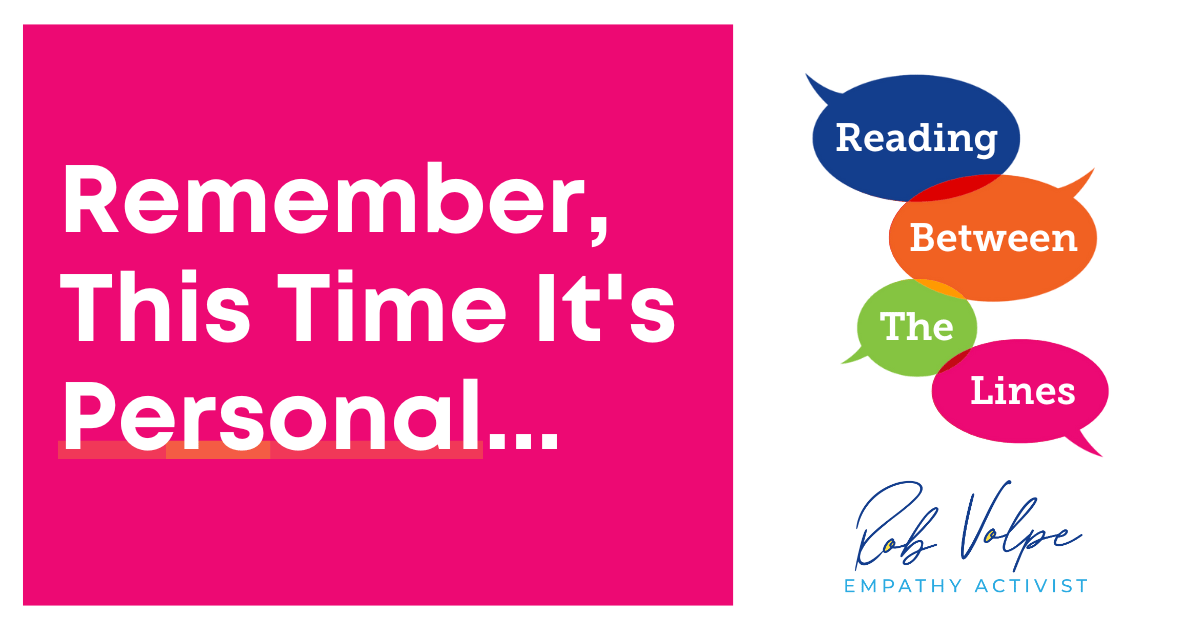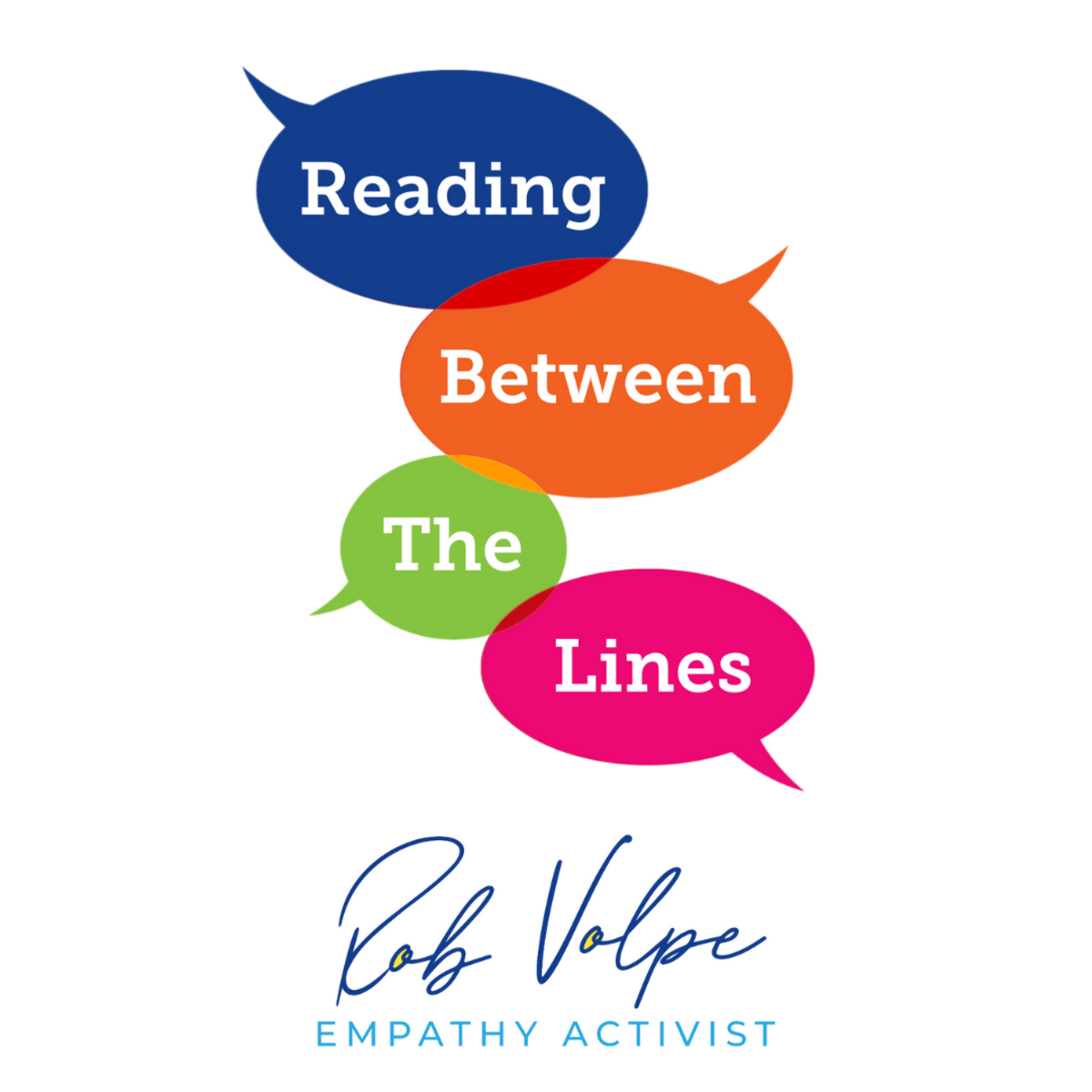Table of Contents
→ How Are You Feeling About It? Me Too.
→ Respect, Understanding and Conversations the Morning After
→ Do You Believe We are Meaner?
Hi! Hope you are having a great day!
Thank you all for subscribing and welcome to the new members! I’m glad you are here.
The stories people shared from the last edition about Halloween candy were really moving. I appreciated hearing memories of childhoods and how those experiences have informed adult lives.
The content of this newsletter is shaped by what you respond to so please email me your thoughts, questions and topics you’d like to explore with me.
As always, a quick reminder of what you can expect in each edition of Reading Between the Lines…
My thinking is here in the newsletter. Links are for diving deeper.
I strive to deliver ‘news you can use’.
I also share insights into human behavior and topics I’m thinking about.
I include amusing or interesting “slice of life” moments.
The Q&A feature is based on questions that come up in conversation - please send me your questions!
I’d like to hear your thoughts- ‘reply’ to this email or reach out directly to: [email protected]
HOW ARE YOU FEELING ABOUT THE ELECTION?
“I’m scared” exclaimed one participant.
“I just want it to be over,” said another.
They were both talking about the election.
I was expecting this type of response from the left leaning participants of the Navigating to a New Normal study, but this came from people on both sides. That I was surprised reflects the political bias I have and how I let that judgment cloud my perceptions of people with different viewpoints. Of course everyone would be feeling stressed and anxious in a contentious, close election in a highly polarized nation.
Given the stereotypes of “the other side”, I wasn’t giving them the benefit of the doubt. (And just thinking of people with different viewpoints as being on the other side is othering and a judgment to be dismantled.)
So we have all this anxiety. The problem is, we aren’t talking about it collectively, we’re still experiencing it asynchronously like so much of our lives - at least across the left and right.
The undercurrent was showing up differently for everyone. Barb, a retired pastor in Texas, commented on the undercurrent of tension which is leading her to re-evaluate how she engages with neighbors and fellow church members.
Kelsey, who works part time as a bartender in a rural, “red” part of Maine, observed the discomfort of being in the minority in a “Trumpy” part of the state.
The only ones that weren’t feeling as anxious were the ones who had voted early. That act seemed to enable freedom or at least a momentary mental respite for them to check out from the barrage of communication.
In the video below, I’ve gathered the responses people shared with us about how they are feeling, what they are concerned about, and how they are navigating conversations with people within and outside their bubble.
As a viewer, I encourage keeping the 5 Steps to Empathy in mind, listening to the participants as humans first, Republicans or Democrats second. Or third. Or not at all.
While these were all individual conversations, there were some opposing perspectives on topics that were illuminating. Look for the viewpoints on leaving the country expressed by a Democrat and Republican as well as the generational push for independence in thought and voting practice among the Black participants.
The “a-ha” moment for me out came when I asked Jennifer of SC, a Republican, how we’ve managed to have conversations about politics over the past 4 years, including discussions about January 6, Black Lives Matter protests and the ups and downs of this election cycle. Her response turned on the light bulb for me and it’s in the video.
She observed that we had respect for each other which made it easier to have difficult conversations.
Reviewing the other interviews, I noticed the word ‘respect’ came up with Gail and Barb as well. They are also seeking to understand people with different viewpoints and recognize that respect is one of the keys to unlocking that door.
And so with that inspiration, I share below several tips for how to have conversations with people “the morning after” - whenever the election results are announced…
Q&A: How Do I Talk About The Election Results without Losing It?
Thanks for asking. This is a question on everyone’s mind as we move toward the results of the election being announced. We’ve been so divided, how do we begin to talk to each other again?
Inspired by the comments from the New Normal participants which are in the video above, I have to offer up the following actions: Respect; Affirm; Understand, and Breathe.
RESPECT - Have we lost our ability to respect one another as people? While some respect is earned, I believe a basic level of respect is mandatory simply because we all exist here together. Moving away from demonizing and seeing someone as human, providing that courtesy of a little respect, will help shift your mindset and in turn, can open up how they respond to you.
AFFIRM - More than any election in recent memory, people are feeling this election personally. Whether it’s a woman’s access to reproductive health and autonomy over her body or LGBTQ+ issues (Brad has an eloquent explanation of the stakes for him as a gay man in the video above) on the left, to retaining guns or the ongoing high prices which haven’t seemed to normalize nor come down, the issues are domestic, societal and will impact people that we know (including me) depending on what happens next. Don’t be afraid to acknowledge that when talking with someone. That’s part of why there is so much passion in their beliefs and in the dialogue.
UNDERSTAND - Be honest with yourself about what you want out of the conversation. Trying to persuade their point of view or offer support in a loss? That will inform how you start the conversation. Remember, it’s not a sports match so no gloating but instead use empathetic phrases such as “I recognize that this issue was important to you.” or “tell me more about your concerns” and take the time to listen so that they feel heard. Add a dash of respect and you’ll be on your way!
BREATHE - Just because the results are known doesn’t mean we are out of the woods. If someone is saying something to you but it’s feeling more like an attack, take a big deep curious breath. It will clear your head as your lungs expand, giving you the space to decide how you want to respond to what’s being said instead of just reacting. Remember, the reaction can make things worse, so try a curious breath to generate a response instead.
Here are a few other recent newsletter editions that might be useful:
Good luck and let me know how it goes! I’m here to help.
Our Overwhelm is Making Us Meaner
Early Reading Between the Lines subscribers might recall a piece I wrote toward the start of this year about the journey that we’ve all been on since the pandemic. One of the traits that the New Normal participants identified was that we’ve all become meaner. They see it playing out in driving as well as once casual interactions at stores, work and online.
Now, the Washington Post has a piece about an Aggressive Driving class in San Antonio that is designed to help people understand where their anger might be coming from and how to cope with that. I particularly liked the comment “Humans are just to overwhelmed with, just, everything.” as the class instructor talked about the economic stress, social stress, unresolved trauma (like from the pandemic) as well as our constant bombardment of messaging and media through our plethora of devices. And while they didn’t mention it in the article, I’ll throw it out there, the election, as witnessed above.
I hope you liked this edition.
Please help spread the word - pass this newsletter along to someone you know that might also enjoy it. Either forward this email or invite them to subscribe at the click of the button below.
Reading Between the Lines delivers of-the-moment insights into empathy and human behavior; expect practical tips on using the skill of empathy in everyday life and exclusive updates to keep my community close. All on a biweekly basis.






